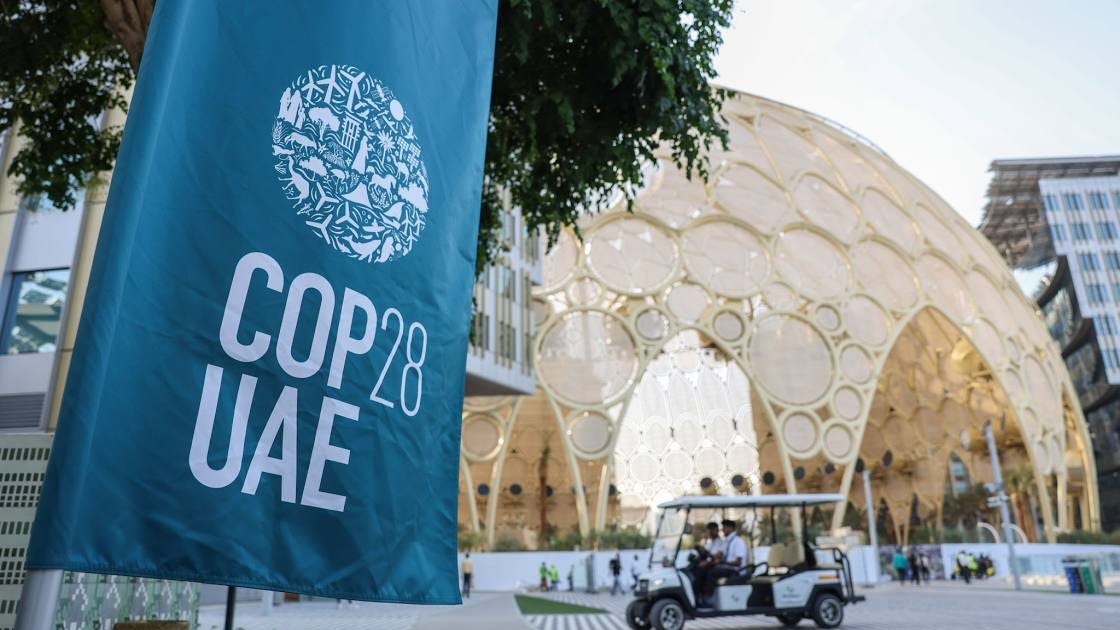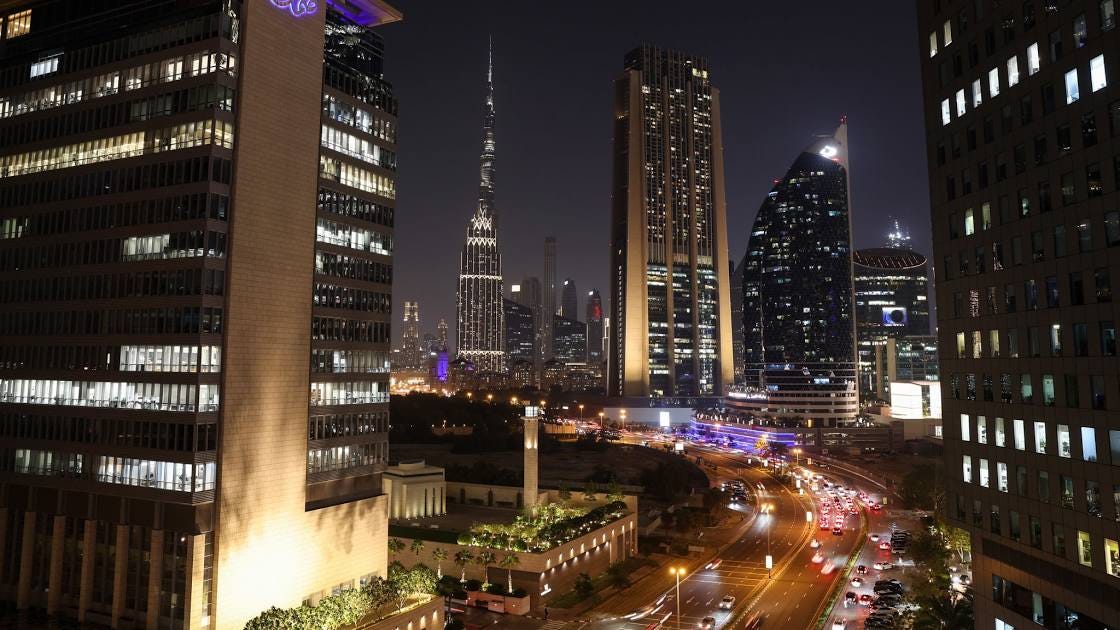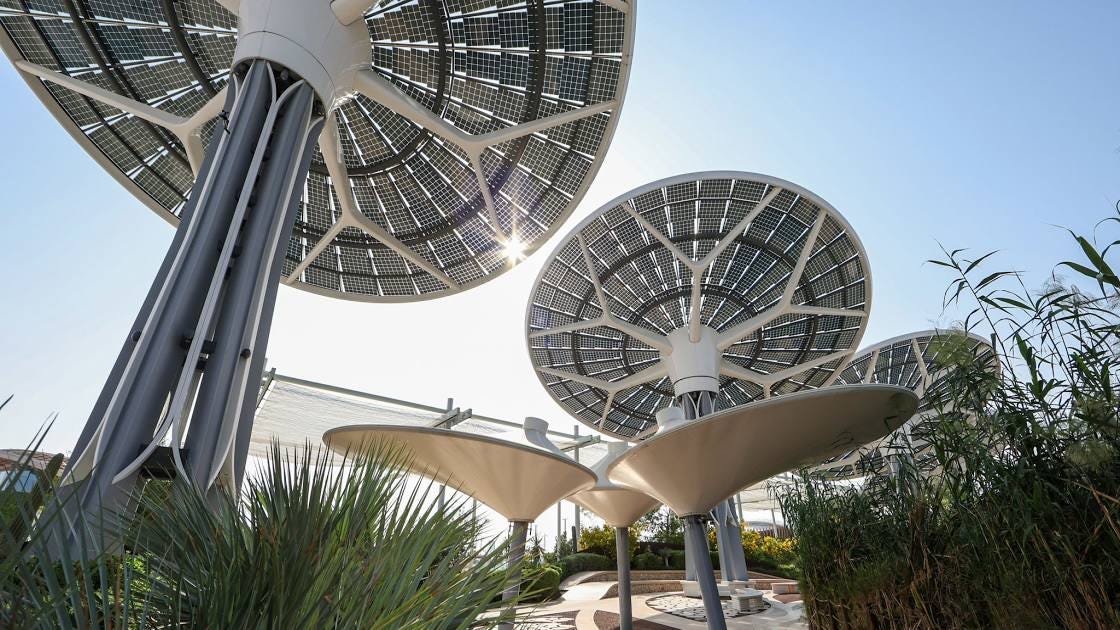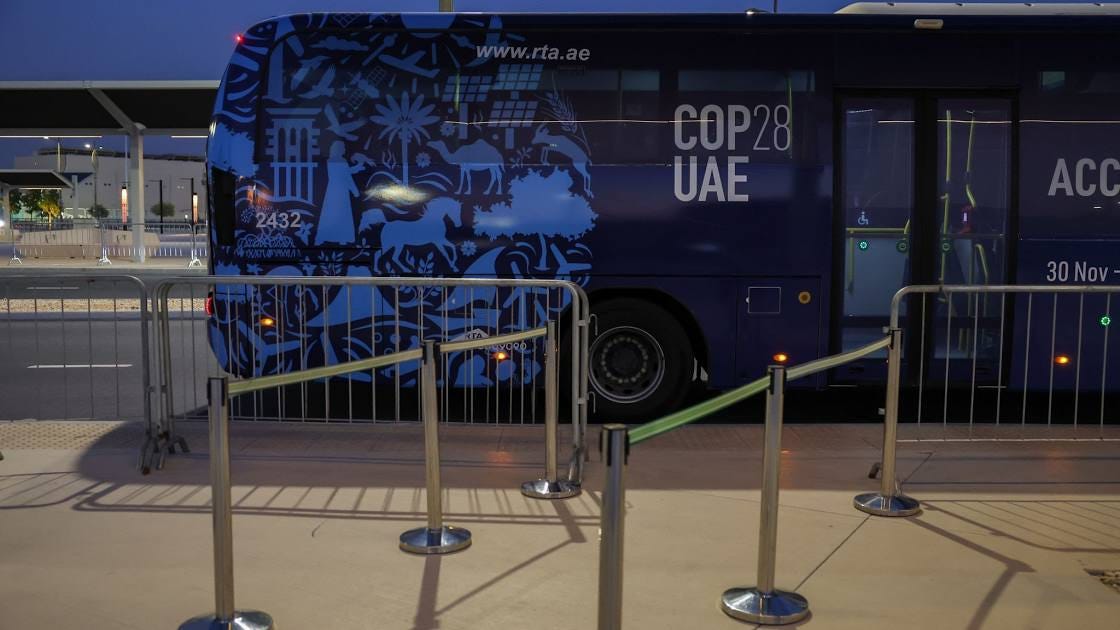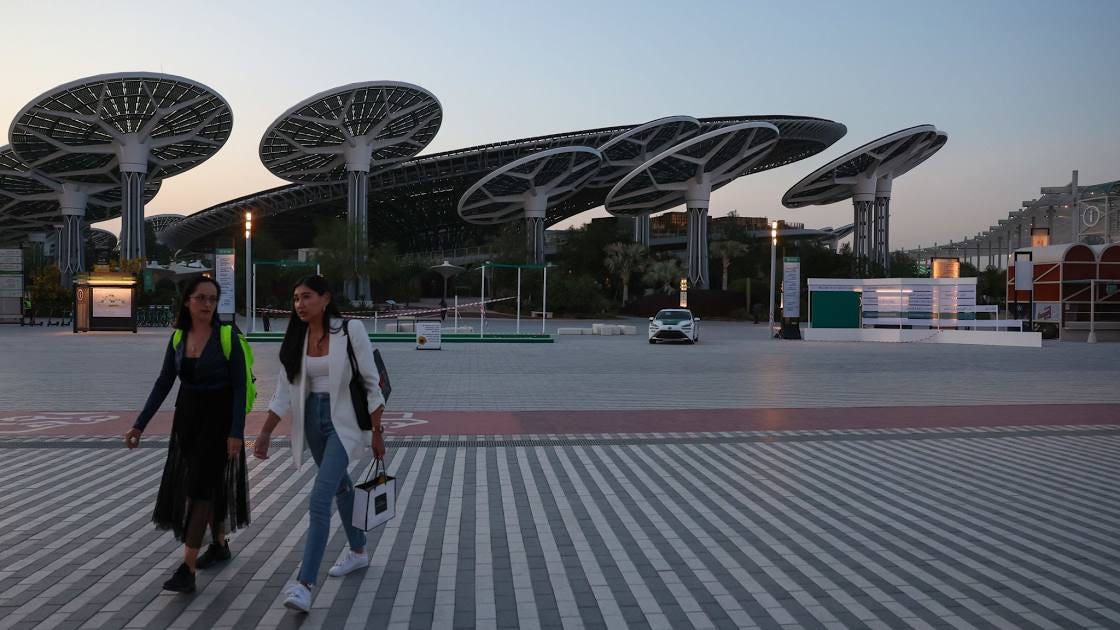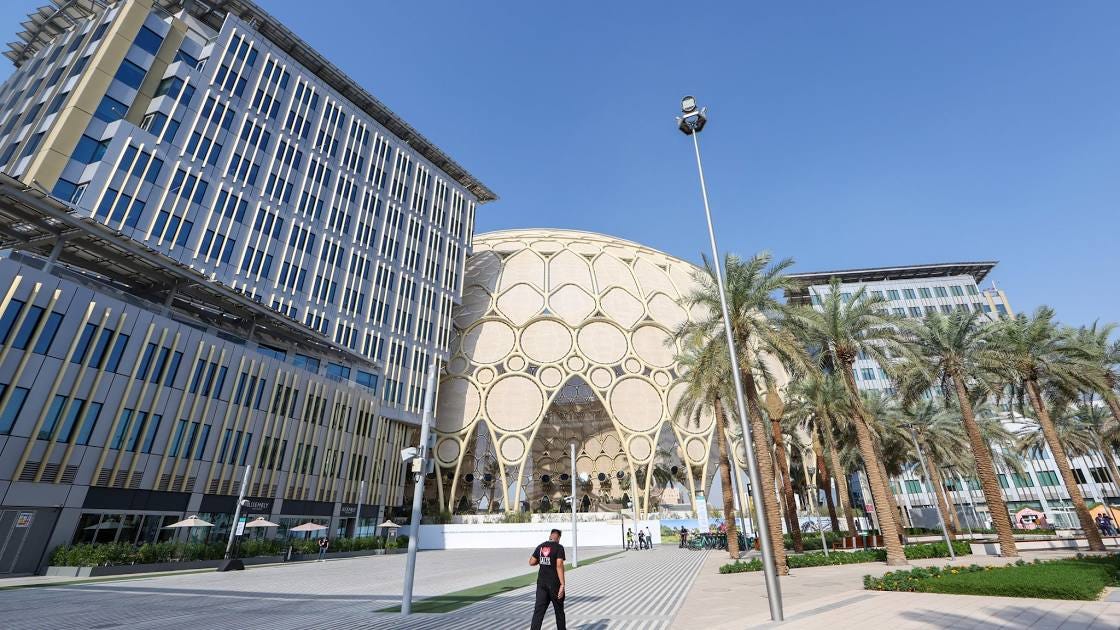COP28 UAE: It's All About Green Energy and Greenbacks
The Global Climate talks kick off in Dubai today.
Setting the Stage for Success at COP28
As the COP28 climate talks officially kick off today in Dubai, United Arab Emirates, there's an evident air of resolve to ensure the summit's triumph. Despite recent BBC reports hinting at potential conflicts of interest, Conference Chair Dr Sultan al-Jaber, who holds dual roles as the President of COP28 and the Head of the UAE's State Oil Company, has motivated his team to prioritize crucial action and pivotal agreements during the first week of the conference. This proactive approach is designed to maximize the first week for major decisions, leaving the second week for fine-tuning and addressing any minor discrepancies, thereby establishing a tone of effectiveness and purpose for the entirety of the summit.
High-Caliber Participation and Ambitious Goals
COP28 is drawing global attention with high-profile confirmations from leaders like U.S. Vice President Kamala Harris, King Charles III of the UK, Indian Prime Minister Narendra Modi, and UK Prime Minister Rishi Sunak. Their participation highlights the summit's significance in shaping global climate policies. The UAE's leadership is focused on harnessing this gathering of world leaders to drive meaningful progress on climate action, particularly in the realm of green energy.
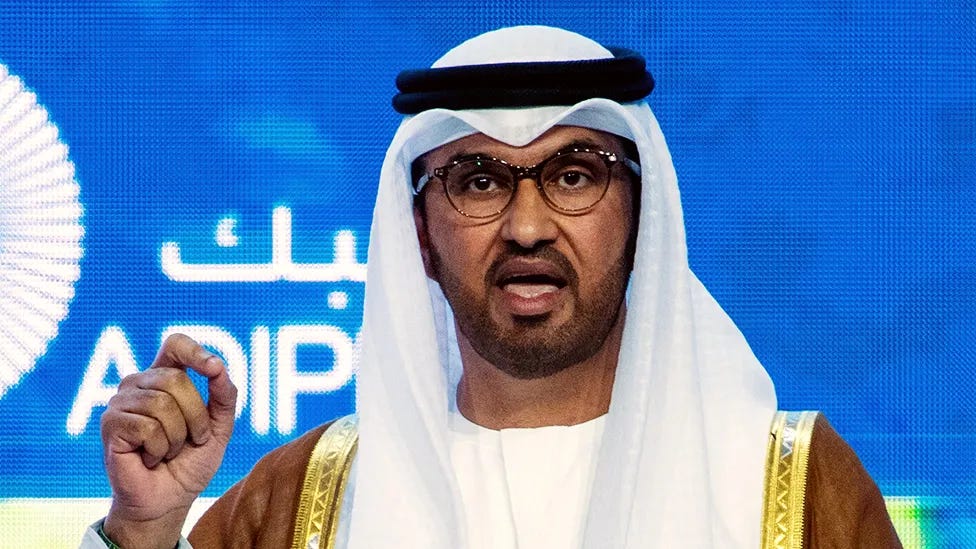
UAE's Response to Pre-Summit Controversies
The UAE, as the host, is addressing the allegations of possible COI with a clear focus on the summit's objectives. The organizing committee and Global South representatives view the BBC's pre-summit report as a potential diversion from the conference's critical goals, such as enforcing the "Polluter Pays Principle" and advocating for per capita emissions considerations in line with the positions of India and China.
A Financially Focused Climate Agenda
At COP28, under the stewardship of the UAE, a primary emphasis is on the mobilization of climate finance. The objective is to swiftly reach a consensus on crucial funding mechanisms, particularly the fund designated for aiding countries affected by climate-related disasters. This pivot from the usual focus on emissions to a more finance-oriented dialogue underscores the dynamic progression of global climate conversations, highlighting the critical need for significant funding to actualize climate action goals. Without solid financial backing, even the most ambitious plans risk being reduced to mere theoretical discussions, underscoring the importance of practical financial solutions for global environmental challenges.
Navigating Financial Commitments Amidst Geopolitical Challenges
Securing financial commitments from sovereign nations for climate initiatives is a formidable task, often complicated by unforeseen geopolitical conflicts. Recent tensions, such as the Israel-Hamas conflict and the Russia-Ukraine war, exemplify the challenges in rallying global support for financial pledges. Beijing, for instance, is not expected to contribute to the loss-and-damage fund and has fulfilled only a fraction of its previous $3.1 billion commitment to less affluent countries. This scenario is echoed in the commitments of other nations, where promises often face hurdles in realization.
USA’s Funding Opportunities and Obstacles
In contrast, the U.S. International Development Finance Corp is actively showcasing its commitment to climate finance at COP28. A notable example is their nearly $1 billion support for the production of solar-power equipment in India, signaling a strong commitment to renewable energy initiatives. This investment, along with $150 million allocated for expanding graphite production in Mozambique and significant investments in forestry in Sierra Leone and Ghana, reflects the U.S.'s active role in international climate financing. However, despite these positive steps, internal political dynamics, especially in the U.S., pose challenges. The $3.7 billion in international climate financing from the U.S., part of an overall $11 billion commitment announced by President Biden, is yet to be fully realized due to domestic political divisions.
Navigating Early Achievements and Future Challenges
The UAE's ambitious plan to secure major agreements in the first week of COP28 sets an optimistic tone. This strategy is designed to build momentum and create a framework for more detailed discussions in the latter half of the summit. However, challenges remain, particularly regarding the scale of financial contributions from developed nations and the collective will to address complex climate issues.
Summing Up: A Holistic Approach to Climate Action
As COP28 commences, the UAE stands ready to showcase that successful climate action extends beyond mere financial commitments. It necessitates a comprehensive strategy that integrates economic, environmental, and geopolitical dimensions, with funding being a crucial yet not the sole component. The global community observes keenly, hoping that COP28 will rise above prevailing controversies and mark a defining chapter in the global climate discourse, embracing the principle that complex challenges demand nuanced, multi-dimensional responses. After all, the summit isn't just addressing policy issues – it's shaping the future of our planet and the destiny of humanity.




